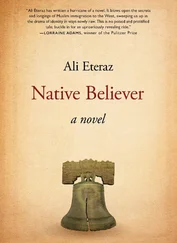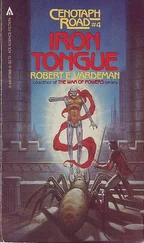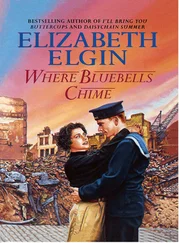Thomas considered it carefully, pleased to note that his earlier consciousness of guilt had completely disappeared, and decided that he could spare a few minutes. For the good of his battered spirit and this dolt’s soul. It had been a long day. He was, he decided, entitled.
“Tell me, Smith,” he asked, “how’s your history?”
“My what?”
“How’s your background in history? The usual mass-ed courses? And surely a little something extra to prepare you for government service?”
“Yeah. So?”
“Do you remember, Smith, the sums of money poured into a cure for the epidemic of child abuse that swept this nation in the late 20th and early 21st centuries? Do you remember when it was not safe to put even the most hardened and streetwise criminal into a prison if his crime was child abuse, because the other inmates would kill him like a mad dog, and less gently?”
“I read about it. Everybody knows about that.”
“Yes. So they do. We’ve stamped out child abuse, haven’t we, Smith… at least we’ve stamped out its excesses and its obvious physical forms. We value our children now, we treasure them, because they are the future of the human race. We no longer leave the molding of their minds and their characters to the random attention of ignorant pseudo-teachers in a parody of education. We no longer leave their diets and their exercise and their medical care to whatever chance factors happen to come their way — our children are cared for now with the very best that this nation can provide, for their bodies and their minds and their spirits. And it makes no difference where they come from or who their parents are, they are all cared for that way. You are aware of all that, Smith.”
“And damned proud of it. So what?”
“Well… Smith, do you consider yourself a man who is fond of children? In contrast to the linguists, for example, who see their offspring only as economic resources.”
“You’re damn right! They’re human beings, they’re not effing in vest ments!”
“You love children, Smith?”
“Yes, I love children! What’s that got to do with anything?”
“Well, then, Smith,” Thomas asked gently, “would you explain something to me? Would you explain to me why it is that the government has not moved to take the children of the linguists away from them? If, as you imply, we treat them coldly and callously, and exploit them — ”
“You do , dammit! You violate the child labor laws before the poor kids are even out of the cradle!”
“Ah… a forceful phrase… And why is that allowed to go on, Smith? If you took your own child and put it to work in a cornfield from dawn to dark, as we linguists put our children to work in government affairs, the authorities would step in and take that child away from you for its own good, wouldn’t they?”
Smith had seen what was coming, suddenly, too late, and he squirmed, and swallowed bile, and chewed on his lips.
“But nobody moves to protect our children from abuse, Smith… why is that?”
“Look — ”
“And when you did take a child from us, Smith, one of our abused children destined for a life of unremitting toil and unrelieved grim labor, why is it that you didn’t take that poor little creature for whom this government has such concern and consideration… and compassion, Smith, such compassion… and put it straight away in a good home with parents who would love it as it deserved to be loved? Would treat it as it deserved to be treated? You’re a compassionate man, who loves children; why was that infant taken to an Interface — which is precisely and exactly what would have happened to it if you’d left it in our care, except that we would not have killed it — and put to work at three and a half weeks of age?”
“Oh, god…” The words came choked from Smith’s throat, and they were forced past his lips like solid objects rather than a string of sounds.
Thomas leaned back and stared at him, all open amazement and wonder.
“Well,” he said, “I believe you began this conversation by accusing me, and all my relatives, of a lack of compassion, Smith. As you define compassion, you and your government. And that’s very interesting. Because I have never in my entire life taken a helpless newborn child away from its mother and given it to strangers. I have never in my life taken a helpless infant and deliberately put it into an environment in which I knew it would suffer abominations and could not, could not possibly, survive. I’ve never done that, and no linguist has ever done that — we linguists, in our total lack of compassion and decency, Smith — we would not do that. You people, on the other hand, you people — ”
He leaned across the table, and he hammered his words home with a blow of his first for every stress.
“ — you have done it over and over and over! And you would do it again tomorrow if you had the chance! You dare talk to me of compassion!”
Smith was gasping, fighting not to twist openly as he twisted inside, fighting not to writhe openly before this monster he was paid to face.
He did not want to think about it. He would not, would not , think about it. He had never considered that question, why it was that the U.S. government, that would have stepped in instantly if any other child, let alone whole generations of children, had been mistreated as the linguist children were said to be mistreated, not only did not interfere but paid enormous sums to cooperate in that abuse. It was not a thought that he was willing to let get the least tendril of purchase in his mind.
“Are you having a little trouble there, Smith?” Thomas asked him, smiling as a shark smiles.
“Go home, Chornyak,” said Smith hoarsely. “Just go home.”
“What, and leave this question just hanging there?”
“ Yeah , leave it hanging there! I don’t want to hear any more about it, Chornyak!”
“Well, I couldn’t do that, Smith.”
“Mr. Chornyak — ”
“I have a certain responsibility here,” Thomas continued. “I can’t raise a major issue like this and just leave you in confusion. That’s not polite. That’s not decent. That’s not compassionate. That’s not even scientific — not when I know the answer, Smith. And I do know the answer.”
“For God’s sake, Chornyak. Please.”
“The answer,” Thomas went on inexorably, “is just as simple as it can be. If my children, and the children of the other Lines, did not spend their lives in endless toil, your children, Smith — and all the rest of the dear little children of this United States and all its comfy colonies — could not be provided with perfect food and perfect housing and perfect education and perfect medical care and the leisure to thrive and live the good life. There would not be enough money to provide all your children with the good life, Smith, if ever we uncaring linguists decided that our children should know that good life, too. You love your children, you see, on the weary backs of ours.”
“That’s not true. It’s not true.”
“No? I’ll listen to your explanation, then, Smith.”
“You know I can’t explain anything to you, you bastard. You’d twist my words around like you’ve done now, you’d lay traps I can’t get out of, you’d put words in my mouth — ”
“And ideas in your poor little head,” Thomas rapped out, letting all his disgust show, on all channels of communication. “If what I say is not true, Smith, teach me! Teach me the truth, and I will see that it is spread to all the other linguists. When you were a little boy, you were in the circles of children holding hands and dancing round our little ones, screaming ‘Dirty stinking Lingoe, dirty stinking Lingoe!” Weren’t you, Smith? But those dirty stinking Lingoes put the food in your mouth and the soft clothing on your back and gave you the time to play and to learn and to know tender love. Would you like to come home with me, Smith, and thank them? Or you can thank me, if that’s more convenient… I used to be one of those children in the center of the circle, I’ll do as an example.”
Читать дальше












